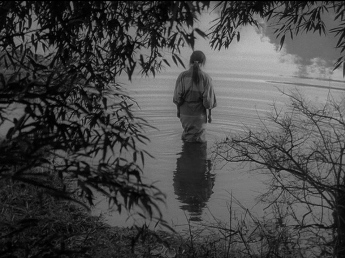Made by Detlef Sierck (soon to be Douglas Sirk) in 1937--the same year that the Nazis became major shareholders in UFA--La Habanera is a minor melodrama that should prove interesting to Sirkophiles and students of the Third Reich. The story concerns Astree Sternhjelm (Zarah Leander), a Swedish bourgeois vacationing in Puerto Rico in the late twenties who becomes enamoured of Don Pedro de Avila (Ferdinand Marian), a hacienda hussy and occasional matador who sweeps the repressed Astree off her feet as only the Other can. She ditches the return leg of cruise to marry Don Pedro, who soon proves to be a tyrannical reverse-colonizer who oppresses the body politic and sexual in an obliquely melodramatic manner.
This part of the picture is the most interesting--a kind of shotgun marriage between melodramatic bathos of the kind Sirk would perfect at Universal in the 1950s and the lurid jungle thrills seen in East of Borneo (1931), King Kong (1933), and other American genre programmers of the thirties. La Habanera shares with Val Lewton's I Walked with a Zombie (1943), the culmination of the latter cycle, a remarkable atmospheric tendency--as if the presence of palm fronds alone gave the director and cinematographer license to coat the frame in five or six layers of intersecting shadows. As a melodrama, the film is compelling if considerably less complex--the oppressed wife story is well shot but never aims to position itself in the middle of the social and economical matrices into which Sirk's finest melodramas (All That Heaven Allows, Imitation of Life) fit so perfectly.
As the film progresses, it becomes bogged down in third-rate Nazi propaganda. As if the abuses of the lusty Don Pedro were not sufficient grounds to prove the inferiority of non-Aryans, La Habanera becomes wrapped up in demonstrating the weakness of the Central Americans through a mysterious 'Puerto Rican Fever' that sweeps the village. Cops and civilians faint and fade into comas in a wincingly literal testament to biological superiority of the Master Race. There's also some business with two doctors (one Swedish, one Brazilian) flown in to investigate the matter, much to the tourism-centered chagrin of Don Pedro. Their plodding fact hunt recalls the Raymond Burr scenes in the American version of Godzilla.
20 March 2007
La Habanera (1937)
Subscribe to:
Post Comments (Atom)

No comments:
Post a Comment